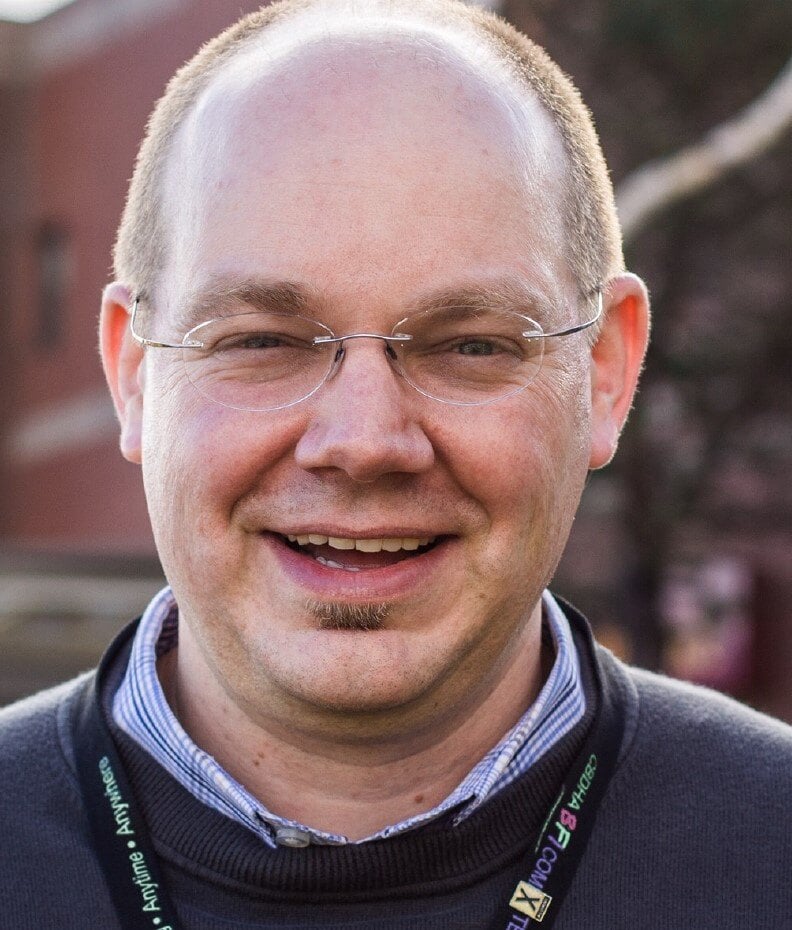The field of gerontology has changed so much over the last few decades. And with population trends shifting toward an increasing proportion of older people, the study of aging has become more important than ever.
People are living longer. But longer lives are not necessarily healthier lives.
Seniors need specific kinds of care and support to ensure good quality of life. With public healthcare systems stretched to the limit, and shortages of people with gerontology training, we’re facing serious challenges in this area.
Do you work with seniors? Want to know more about the aging process, challenges facing today’s seniors, and practical methods for ensuring safe, effective care?
That’s what we teach students in our online gerontology certificate. This week, we sat down with instructor Mickey Daye to learn more about his background, what topics and skills are covered in the course, and who the training is geared toward.
Here are the highlights of that conversation.
Q. Mickey, could you share a bit about your education and professional background?
Mickey: I started off as a licensed practical nurse in 1997, then went back and did my nursing degree to become a registered nurse. Throughout the years, I’ve worked in medical-surgical geriatrics, pediatrics, neonatal intensive care, all kinds of services.
Later, I went back to school and completed a Master of Education with a focus on administration and leadership in 2012.
I’ve worked in acute care, in long-term care, and in university. I taught at Cape Breton University and St. Francis Xavier University in their nursing programs. I currently teach at Cape Breton University in their healthcare management program as well.
Over the last number of years I’ve gone from staff nurse to clinical nurse lead in pediatrics, and then I went into management of maternal newborn. I’ve also been a director of nursing for three local hospitals.
Q. How did you get started in gerontology?
Mickey: I actually started as a high school student. My mother was a nurse and she worked in a long-term care facility, so I started as a student feeder after school, helping to feed the residents.
When I started as an LPN, I worked in a nursing home, and then I worked for Victorian Order of Nurses [which provides home and community care]. So I used to see a whole array of patients, from young to old.
My medical-surgical was a lot of adults and seniors. And then when I was teaching at StFX and at CBU, I did some geriatric rotations with students there as well.
Q. What would you say have been the major changes in the gerontology field over the last few years?
Mickey: One big change is that the older adult population is living longer. So what are the physical changes that we’re seeing in that population? As they’re living longer, they’re also living more independently and needing other housing options. So what do we need to look at around those sorts of things? What family dynamics are changing as people are living longer?
There are also issues around end of life and the incorporation of more palliative care and hospice care. And then there are issues related to multiculturalism and different gender relationships.
Q. What are the main learning goals of the gerontology certificate? What key skills does it cover?
Mickey: I think the biggest thing is that the course is trying to bring a breadth of knowledge to the students so that they have a better understanding of all different aspects of older adults. So we explore the changes that are taking place, whether it’s physical, housing, lifestyle changes, sexuality, etc.
Q. Who would benefit from this kind of training?
Mickey: I think the course would benefit healthcare providers that work in long-term care especially. It could also benefit family members who are trying to look after somebody and want a little more breadth of knowledge around gerontology.
Q. What advice would you give students who are considering this training?
Mickey: There are lots of videos and interactive content in the course outline. There are also some extended readings in the course that provide some really good in-depth information. Some of it is around the social determinants of health and how that impacts older adults; there’s also other stuff about different lifestyles and how aging physically changes us.
So just make sure you take full advantage of all the resources provided in the course.
EXPLORE THE ONLINE GERONTOLOGY CERTIFICATE FROM KOMPASS
If you would like to learn more about the course, it’s easy to get in touch.
Start by clicking below to browse the training in more detail. See course descriptions and get more information on tuition prices and any available discounts.
There are also admissions advisors standing by via online chat to answer your questions about enrolment, when the next course begins, and more.
Find out if online gerontology training is right for you. We’re here to help!








